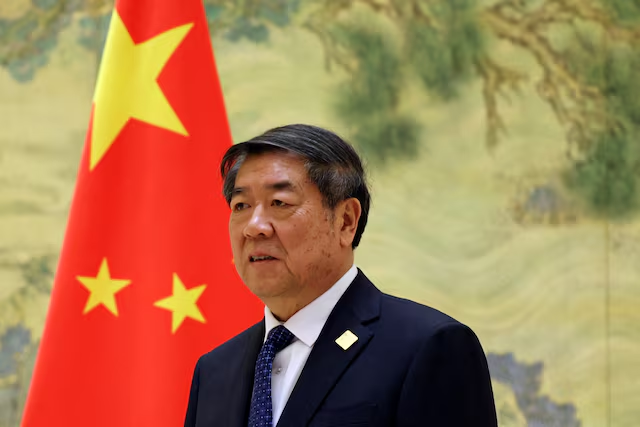He Lifeng, a senior Chinese official close to President Xi Jinping, is set to play a crucial role in breaking the trade deadlock between China and the United States. The 70-year-old vice premier will meet U.S. Treasury Secretary Scott Bessent and trade negotiator Jamieson Greer on Saturday in Switzerland. This comes amid ongoing tensions between the world’s two largest economies, with tariffs on each other’s goods exceeding 100%. He, who oversees economic and trade affairs, is expected to help ease these tensions, as U.S. President Donald Trump has repeatedly asked Xi to engage in talks about a potential trade deal.
He Lifeng’s Rise as a Key Negotiator
He Lifeng is not a new face in Chinese political circles but has recently emerged as a key player in trade negotiations. Known for his close ties with President Xi, He has slowly earned a reputation as a trusted figure in dealing with foreign investors. Over the past year, He has undergone a significant transformation. He has become a more confident and effective negotiator, impressing those who have met with him with his ability to get things done and navigate complex issues.
A Steady Presence in International Business Circles
In recent years, He Lifeng has cultivated relationships with major global business leaders. When senior executives from some of the world’s largest companies visited Beijing last month, many were impressed by He’s approach. Despite his limited English and initial reluctance to stray from prepared speeches, He has become increasingly adept at engaging with foreign leaders. He has held at least 60 meetings with foreign executives in the past year, marking a steady rise in his diplomatic activities since taking office as vice premier in March 2023.
He’s Influence on China’s Economic Strategy
He Lifeng’s reputation has also been shaped by his previous role as head of China’s key macroeconomic planning agency. In this position, he was responsible for shaping industrial policy and defending China’s export-led growth strategy. Many foreign businesspeople noted that He is not a policy innovator but rather a defender of the status quo. He has consistently supported policies that promote manufacturing over domestic consumption and has repeatedly defended China’s trade surplus.
He’s focus on maintaining China’s trade surplus is central to his economic strategy, as it plays a significant role in job creation within the country. Experts believe it is unlikely that He will soften his stance on this issue. He Lifeng is seen as a key figure in defending China’s economic policies, including its trade surplus, which remains a point of contention in global trade discussions.
Trade Deficit and Global Relations
He Lifeng’s position on China’s trade surplus has raised concerns in other countries, particularly regarding overcapacity in Chinese industries. Despite these concerns, He has consistently brushed off complaints from foreign investors, particularly those in countries seeking new cooperation with China. He has reiterated China’s commitment to its export-driven growth model, even as some countries push for more balanced trade relations.
The ongoing tariff disputes between the U.S. and China have further highlighted these tensions. Both countries have imposed tariffs on each other’s goods, affecting a wide range of industries. As one of China’s top negotiators, He Lifeng’s role in resolving these issues will be pivotal in determining the future of U.S.-China trade relations.
A Key Player in Trade Talks
He Lifeng’s upcoming meeting with U.S. officials in Switzerland is expected to be a critical moment in the ongoing trade dispute between China and the United States. His reputation as a fixer and his deep involvement in China’s economic strategy make him a crucial figure in the negotiation process. While He’s policies may not be innovative, his influence in shaping China’s approach to trade and economic relations is undeniable.

